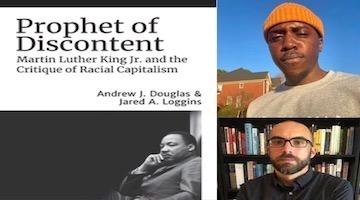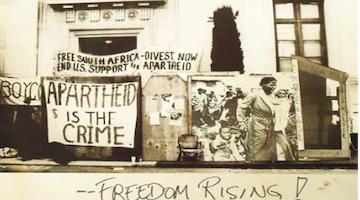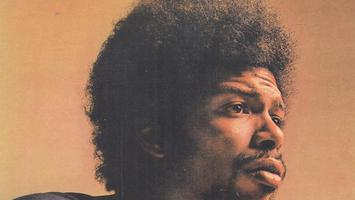“All of the women in the book envisioned new and expansive visions of black liberation.”
In this series, we ask acclaimed authors to answer five questions about their book. Today’s featured author is Ashley D. Farmer. Farmer is Assistant Professor of History at Boston University. Her book is Remaking Black Power: How Black Women Transformed an Era.
Roberto Sirvent: How can your book help BAR readers understand the current political and social climate?
Ashley D. Farmer: The value of history is that it can contextualize the current moment and offer insight into what is similar and different about the worlds that we inhabit. At is core, my book is a history of how black women reimagined and redefined black liberation using the central principles of Black Power. It offers insight into how, why, and to what extent black women were able to imagine themselves as empowered activists and what ideologies and organizations they found to be the most useful in helping them change the world.
Reflecting on their goals, successes, and shortcomings, can help us better understand contemporary movements such as Black Lives Matter. When we view BLM in the current moment, we can see its value in its grassroots response to issues like police brutality. However, when we understand it as part of the legacy of the Black Power Era, it becomes an even more nuanced and powerful strain of activism. We can also see how the organizational structure and leadership of Black Lives Matter reflects the inroads that earlier black women activists, particularly Black Power organizers, made. For example, the women inRemaking Black Power all pushed for a more intersectional understanding of black liberation irrespective of their ideological or organizational affiliation. BLM organizers have explicitly and carefully built on the ideas of the previous generation and created a more inclusive and expansive movement. This is reflected in the non-hierarchical leadership of the movement as well as leaders’ refusal to privilege some forms of liberation over others.
“’Black Identity Extremists’ is really a repurposing of COINTELPRO.”
The same can be said for understanding the government’s attacks on current activists. Recently the FBI has labeled anti-police brutality protesters as “black identity extremists.” Although this may seem like a new threat, it’s really a repurposing of COINTELPRO—the government’s Counter intelligence program designed to root out “subversives” in the 1950s, and perfected through the jailings and murders of black activists in the 1960s. Black Power era activists experienced many of these issues firsthand through personal attacks and repression against their families, friends, and communities. They have much to teach us in terms of how we can better understand the scope and reach of government repression and how to come together as a community to respond to these tactics.
What do you hope activists and community organizers will take away from reading your book?
I hope that activists and community organizers find the book both supportive of their existing efforts and a source that helps them generate new ideas. One of the many difficult aspects of organizing is the feeling of isolation—both personally and ideologically. Remaking Black Power shows how women from the 1950s to the 1980s not only shared these experiences, but also how they developed a rich legacy of organizing and community building to respond to it. I hope that it helps activists today see themselves as part of andcontributing to this long tradition. The book is also about exploring black women’s ideas of what inclusive freedom could look like in the future. To be sure, they were not always successful. However, I hope that activist readers will find inspiration in these black women’s efforts and ideas and see ways to draw upon them when building their own strategies for black liberation.
We know readers will learn a lot from your book, but what do you hope readers will un-learn? In other words, is there a particular ideology you’re hoping to dismantle?
One of the primary goals of my book is to move beyond the idea that men theorized and women organized. What I mean by this is that we often write and study black history as if the male leaders of organizations were the ones who came up with liberation theories and black women were the foot soldiers who enacted these ideas. Black women certainly played a vital role in every major black radical movement and organization—especially when figuring out the best ways to put ideas and ideologies in action. However, focusing on this aspect of their work has also often led historians to not frame them as theorists in their own rights.
This is further undergirded by the ways in which we teach and study history. In addition to privileging men as the primary thinkers in society, we often conceptualize what “counts” as evidence of intellectual production in very narrow, patriarchal terms. Barred from many traditional outlets, black women publicized their theories and ideas in the forms and formats that were available to them—including interviews, artwork, consciousness-raising sessions, and more. The traditional methods of the academy are not designed to capture black women’s diverse and vibrant ideas and theorizing. So, I had to un-learn these ways of searching for historical evidence in order to write a book that could more fully account for black women’s intellectual contributions. I hope that readers will find the book’s coverage of black women’s intellectual production to be a stepping stone in rejecting our white, hetero-patriarchal understandings of intellectualism, ideas, and evidence.
Who are the intellectual heroes that inspire your work?
My book is first and foremost inspired by the black women theorists I study. As I talked to them during the research process, they always encouraged me to be as capacious as possible in my understandings of their movement work. They also continually pointed me to their often overlooked sites of individual and collective theorizing. These theorists include but are not limited to Frances Beal, Gwendolyn Patton, Angela Davis, Amina Baraka, Kathleen Neal Cleaver, and many others. Among historians, I find the work of Barbara Ransby and Robin Kelly to be foundational in shaping my historical thinking and writing, modeling how to be an engaged and critically-thinking activist-scholar, and showing how to foster communities that keep the ideals of the activists that I study alive.
In what way does your book help us imagine new worlds?
My book is how black women of the past theorized and imagined a better future. More specifically, it addresses how women in the Black Power Era reimagined definitions of black womanhood using principles such as self-determination, anti-imperialism, and self-defense from the 1950s to the early 1980s. By documenting their different approaches, I show that black women had multiple strategies and ideas about how to organize themselves and their communities, and that they consistently and successfully engaged in an evolving dialectic between theorizing and activism. All of the women in the book envisioned new and expansive visions of black liberation—and some obtained and embodied these ideals individually, personally, and through their community organizing. I hope that readers find inspiration in these women to pursue their own freedom dreams, and see that many black people past and present have left a guide for them moving forward.
Roberto Sirvent is Professor of Political and Social Ethics at Hope International University in Fullerton, CA. He also serves as the Outreach and Mentoring Coordinator for the Political Theology Network. He’s currently writing a book with fellow BAR contributor Danny Haiphong called American Exceptionalism and American Innocence: Essays on Race, Empire, and Historical Memory.



















